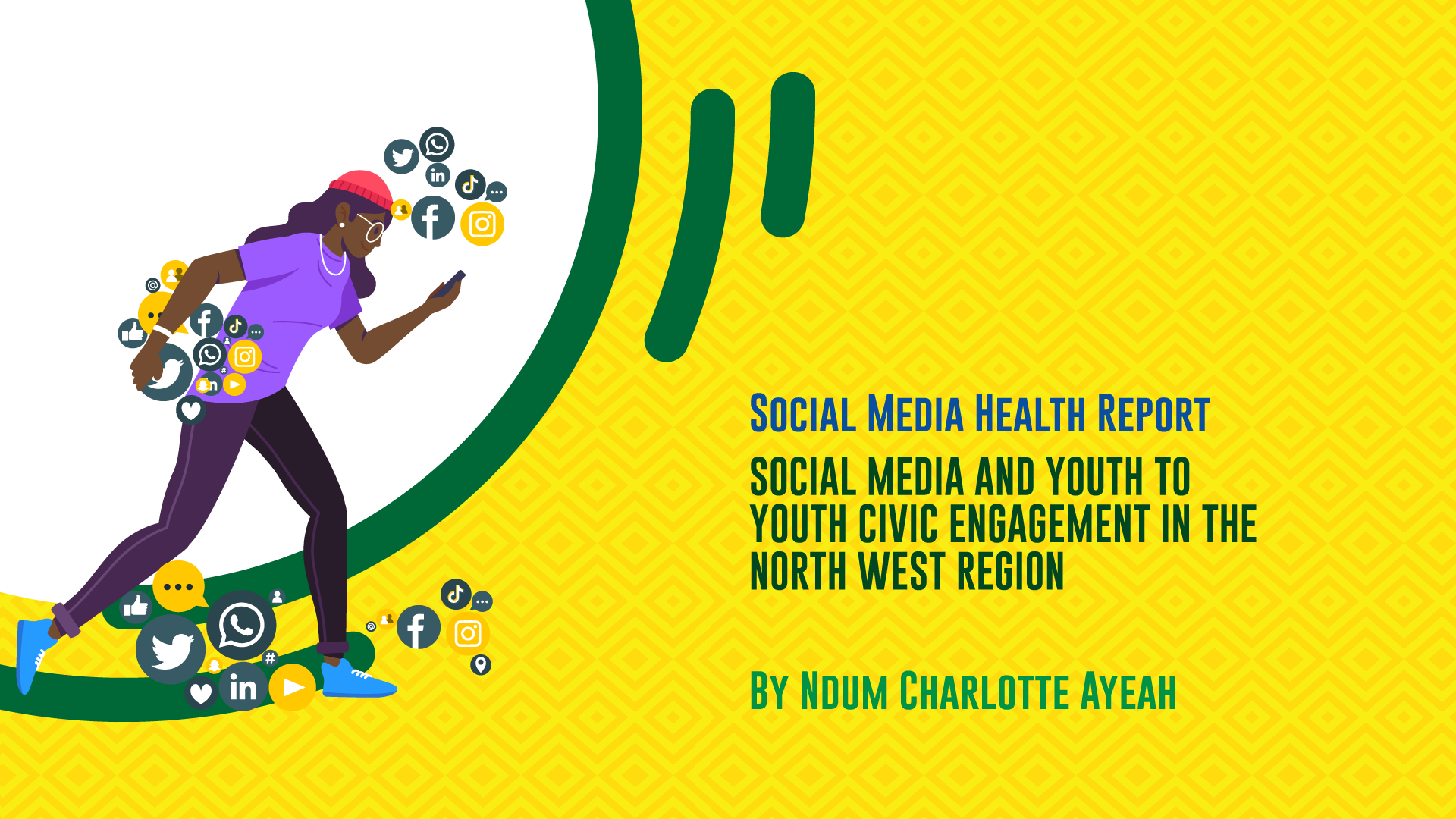INTRODUCTION
Social media is revolutionizing youth-led civic engagement which has gained quite a lot of momentum lately. This virtual space is instrumentalized by some youths to shape the contemporary public sphere and influence concrete change. This is depicted by the actualization of several communal-based projects engineered and fostered by Youths in their local communities and municipalities, due to the indisputable power of social media.
The ongoing Anglophone crisis has been a source of despair, frustration, disgruntlement, and indifference to many young people in the region. Some Youths, however, are challenging the status quo thanks to social media which is giving an alternative avenue far from the war-torn and conflict-stricken environment the denizens of this region have unfortunately become acclimatized to. The advancement of digital media and its influence on social, political, and economic issues facing the Bamenda urbanity has steadily been on the rise. This is seen as some young people have proven eager to empower themselves politically, socially, and economically by embracing computers, smartphones, and other web-based technologies.
Against the backdrop of this phenomenon, the role of social media and its influence on social mobilizations, and political and economic issues in this region is an evolving discourse with some traces of positive results recorded so far. The opportunities presented by social media to the youth as a strong tool for civic engagement cannot be overemphasized as it has been maximized by some to stimulate proposals for transformative solutions.
While some young people might not be able to exercise all their civic obligations yet like voting, which remains a point of advocacy for the reduction of the voting age from 20 years to 18 years, they are leveraging on social media to educate themselves and their peers on topics ranging from communal participation, advocacy, volunteering all denoting civic engagement. Some Youths in this region have duly established themselves as quintessential models worth emulating in the afore-mentioned compartments. They have embarked on both subtle and rigorous advocacy campaigns targeting concerned stakeholders for ameliorations and better policies in these niches
BODY
It is not unusual for youths to have hundreds or even thousands of followers, more reason why some today are heavily networking with their peers and community, allowing them to disseminate information quickly and easily. They have been using social media to circulate new posts of them volunteering, registering to vote, advocating, calling out stakeholders and Government officials, offering political commentary and constructive criticism, sharing acts of injustice, and mobilizing their peers to take action. Youths have carved out a digital space for themselves to fully engage. Despite the crisis currently arguably at its pinnacle characterized by violent extremism perpetrated mostly by some Youths, others are constituting themselves via their social media pages, groups, and networks to harness a new breed of trailblazers and pacesetters armed with the requisite capacity and intellect to be leaders of today and tomorrow with disruptive mindsets for classical change in all ramifications of the word.
It’s equally important to highlight the fact that the surge of youth inspired to be civically engaged is not new but has just been amplified by the exploitation of the social media enterprise by these youths to mobilize their friends into conversation and action. So, while young people have always had an important voice and been a catalyst for social change, the digital age has given them a new powerful tool that has changed the way they approach civic engagement, more so those in the restive North West region who are directly feeling the brunt of the crisis. To this effect, it is not an overstatement to say that social media has fundamentally revamped the way youth civic participation is conducted in this age. And it’s safe to say Young people should be at the forefront of the change, having grown up with the technology and having the skill to use it effectively.
Some of the Youths who could be cited in the North West Regions falling within this category include;
Njumanuh Constance
Njoke Raissa
Abdul Aziz Adamu
CONCLUSION
With social media civic engagement growing exponentially, now more than ever, there is a need to enhance the fact-checking skills of the Youths in this region to restore eroded trust by fake news, improve their civic online reasoning, encourage best practices and responsible social media usage amongst them
RECOMMENDATIONS
-Young People should be encouraged to utilize their social media pages to propel the language of love and Civic engage rather than hate and negativity
-More should be done to encourage youths who are civically engaged and are leveraging social media to contaminate other young persons to follow this path. This will go along way to deter uncivic behavior amongst youths
Related links
https://www.facebook.com/njoke.raisa



